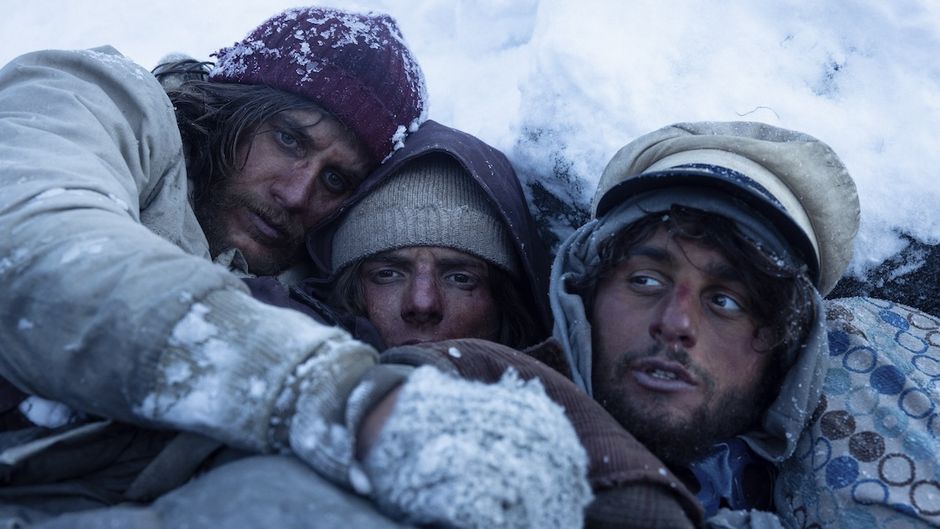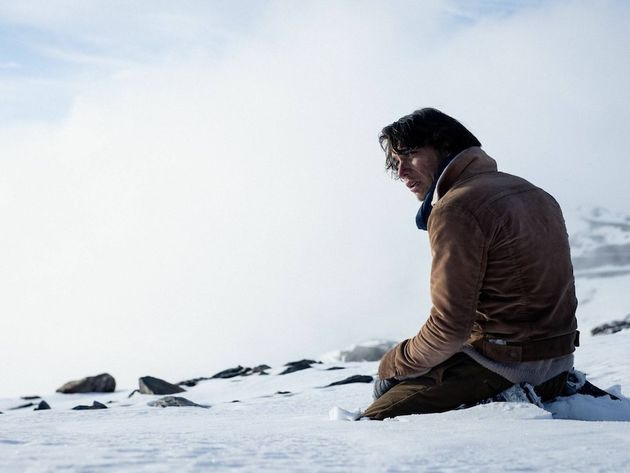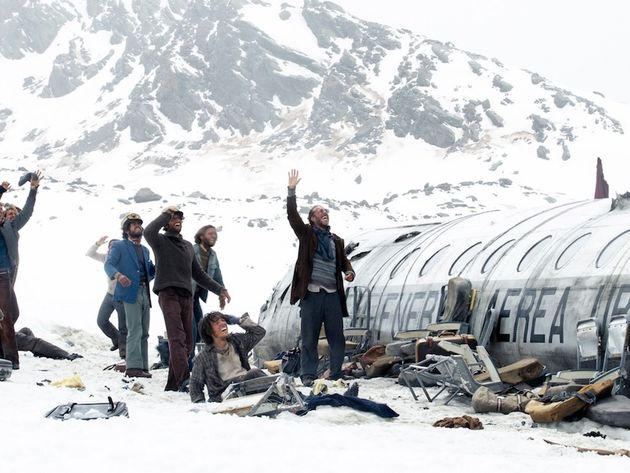Suffering is experienced in different ways according to the assumptions that each human being holds. A commentary on the film by Spanish director Juan Antonio Bayona.
 Promotional image from the film / Netflix.
Promotional image from the film / Netflix.
Juan Antonio Bayona is considered a genius in the cinema world. The Spaniard has a list of memorable films, including Jurassic World: The Fallen Kingdom, A Monster Calls and The Impossible.
In this latter film, produced in 2012, Bayona already showed his ability to portray the desperation and despair experienced in extreme situations, when life is put to the test in the most extreme scenarios and the struggle for survival brings out human resilience.
Human beings are addicted to stories, and even more to those that are true. What makes Society of the Snow such an impactful film is precisely that it goes beyond fiction.
Just imagining that the terrible events we see on screen are real events of 50 years ago touches our emotional fibres. The film portrays the 72 days that the survivors of Uruguayan Armed Forces Flight 571 had to endure in the inhospitable mountains of the Andes, with temperatures that dropped to -30 degrees when the sun went down.
It is clear from the beginning that Bayona wants to show the importance of the spiritual dimension in his film, which for many of the crew members will be an anchor in the midst of despair and pain.
In one of the first scenes, Numa Turcatti appears with his entire family in a Roman Catholic church. The main voice of the film until almost the end is that of Numa, a deceptive device of the director, since it is assumed that the one who tells the story will be part of the survivors, but that is not the case, as Numa ends up dying only two weeks before the great rescue.
Spiritual elements are present throughout the film as most of the characters in real life had an intense Roman Catholic faith and these convictions are put to the test in the struggle to preserve life.
In Society of the Snow we see clashing worldviews, the ethics of the young people, their faith and their gods.
The question of whether or not to eat human flesh is already a moral issue for those who do not have any faith, but for those who do and consider the human body to be more than just a collection of evolved flesh and bones, it will be a great challenge. Despair and uncertainty spill over the big screen and reach the viewers as well.
In one of the most memorable conversations in the film, Numa encourages Arthur to have faith, Arthur replies that he has more faith than ever, but that his faith is not like his, that his God is not like his:
“My faith, excuse me Numa, is not in your God, because that God tells me what I have to do in my house, but does not tell me what I have to do on the mountain.... Numa, this is my heaven (while touching the roof of the plane) and I believe in this God... I believe in the God that Roberto has in his head when he comes to heal my wounds, I believe in the God that Nando has in his wounds to go for a walk without conditions, I believe in Daniel's hands when he cuts the meat and Fito when he hands it out, without telling us which friend it belonged to so we can eat it without having to remember his look, I believe in that God”.
That scene is a reflection of what happens in real life. Faced with the same event, two people can see the facts differently according to their worldview. Suffering is experienced in different ways according to the assumptions that each human being holds.
A genuine and practising Stoic (if Stoicism can actually be practised) would accept without question the suffering in his own life and in the lives of others. But that's not the reality for most human beings.
Arthur's complaint about “a God who tells me what to do in church, but does not tell me what to do on the mountain” sounds very much like the complaint of most people who cannot reconcile the idea of an all-powerful and good supreme being who at the same time seems indifferent or impotent in the face of the greatest problems of humanity.
But somehow, Arthur's god is not completely different from the God of the Bible because, in our day to day life, it is God who heals us through medicine, who loves us through friends and who sanctifies us through the Church, but God is much more than that.

Perhaps Numa knew that suffering, that deep sense of pain felt all over the body and nowhere at the same time, is an experience that not only concerns created beings, but also the creator himself.
The whole world wonders what the final note Numa left to his friends the night before, when he knew he was going to die, meant. In it was not only permission to use his body as food for the fraternity when he was no longer there, but also the most vivid example of love and self-sacrifice that denies itself for the sake of others.
What is most interesting is that Numa, who refused to be fed by his dead friends, now made his body available for others to do so, leaving such a note to relieve them of the burden of guilt that such act entailed.
That scene is a gospel cry to our contemporary society. Although the abysmal difference is that Numa had no choice but to let himself die, it was not his personal choice, but Jesus willingly emptied himself for a death on the Cross.
Therefore, knowing what was coming, he encouraged his disciples and warned them: the one who loves most is the one who lays down his life for his friends. He would literally give it. Jesus, the man of sorrows, knows more about suffering than any of us.
Bayona decided that Numa should be the main voice of the story, because he recognised in his final note, the essence and definition of sacrificial love.
In our daily lives, as we go about our daily activities, we encounter people who question our faith. Of all the questions, I think one of the most difficult to answer is the problem of suffering. “If God really exists, why does he allow suffering? If God is real, why didn't he stop flight 517 from crashing into the Andes? Why didn't he preserve the lives of the passengers?”

Those are honest questions that rational people often ask, but we should know that this is not a common question that requires a logical/rational answer.
The one who asks is not looking for a logical definition of what suffering is, nor a schematic explanation of why God permits it, but one that pierces his heart and convinces his emotions that the God of the Bible really loves and cares for his creation, that he is not like Arthur's god, who willingly ignores suffering.
Whether we choose one argument or the other, we must seek to lead the questioner to the glorious truth of the gospel. In fact, the question to the problem of pain is the one that most quickly and naturally leads us to the Good News, for there is no better answer than a God who so identifies with and loves his creation that he chooses to suffer for it, with the promise of removing evil one day and bringing justice and eternal peace.
As I heard my apologetics professor say: “there is no amount of evil that cannot be drowned in the sea of eternity”.
Society of the Snow is a very honest reflection of the different responses we as human beings have to the problem of suffering, either we encounter an indifferent and even useless God or we encounter the God of the Bible, who suffers with those who suffer, but who is also all-powerful to put a date for the end of the evil in the world.
The film also gives us great reminders for everyday life: life is a miracle, pain is not an option, and only those who have placed their hope in Jesus are able to identify with their master in everything, even if that means imitating him to the point of death.

Las opiniones vertidas por nuestros colaboradores se realizan a nivel personal, pudiendo coincidir o no con la postura de la dirección de Protestante Digital.
Si quieres comentar o